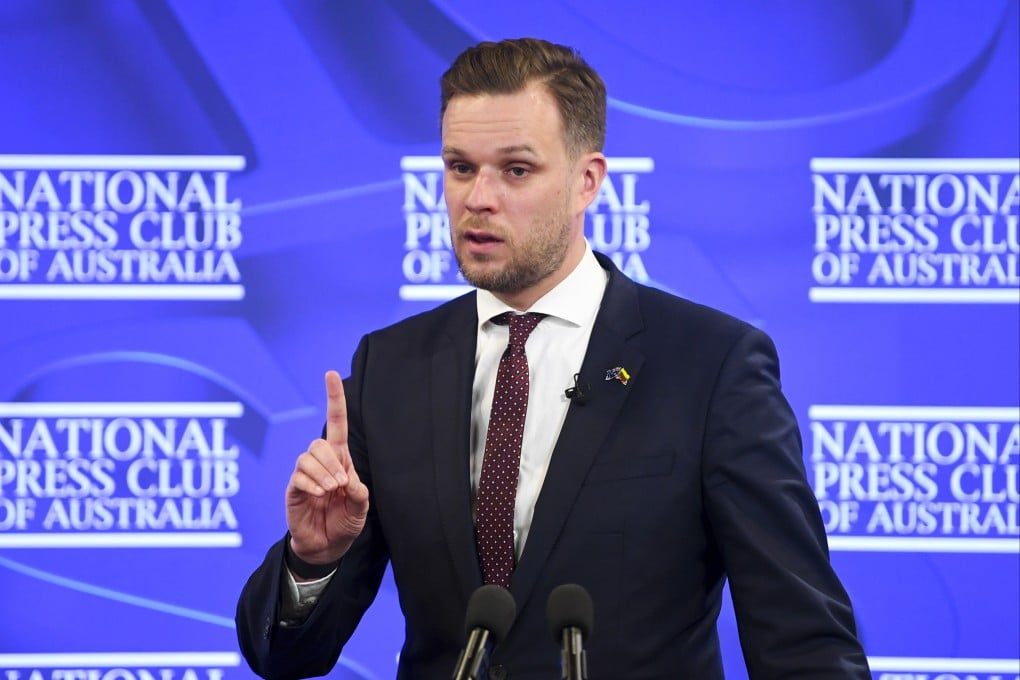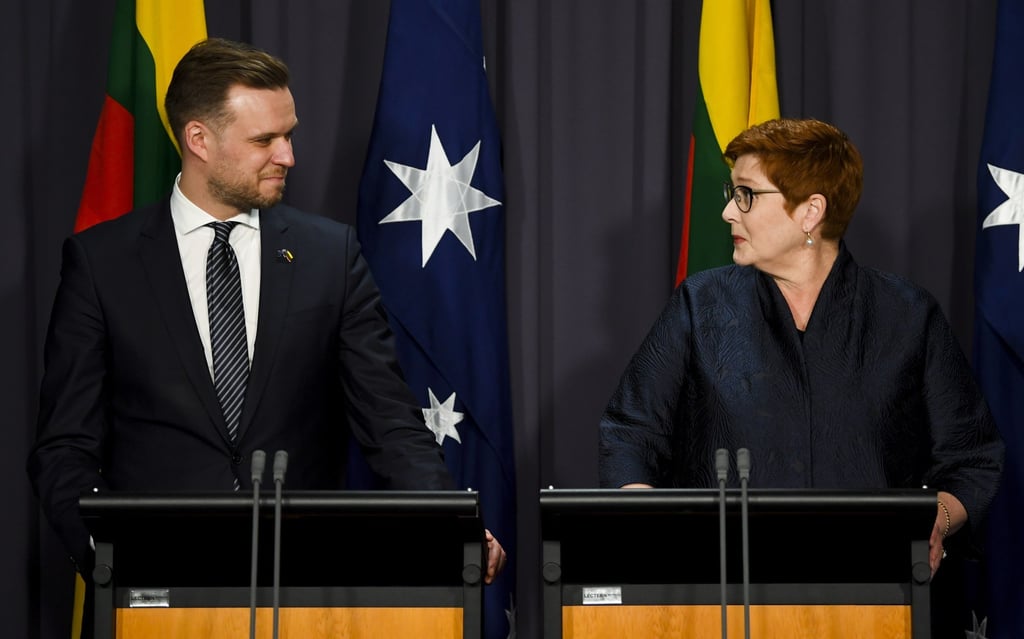Lithuania won’t back down over Taiwan, says minister in Australia as row with Beijing grows
- Foreign Minister Gabrielius Landsbergis rejected that Lithuania had breached its ‘One China’ policy, and urged like-minded countries to band together amid ‘economic coercion’ by China and Russia
- Before his trip to Canberra, Landsbergis also visited Singapore, where Lithuania plans to open its first Southeast Asian embassy

The self-ruled Taiwan, which Beijing views as a renegade province, is not formally recognised as an independent state by most countries, and usually uses the names Taipei or the Republic of China on the world stage.
Landsbergis said Lithuania would not back down or stand to be bullied when asked if a “truce with China” was on the table. He added that countries like China were increasingly weaponising trade for political leverage.
China on Wednesday suspended imports of beef from Lithuania but did not give a reason for the decision. The move came months after Beijing downgraded diplomatic ties with Vilnius after the opening of the Taiwanese office.
“We believe that people from Taiwan can ask their representative office to be called the way they want it. We’ve been very specific that we adhere to our One China policy and we didn’t break our rules and obligations,” Landsbergis said at the Australian Press Club. “We figured that China would be upset. And we’ll be upset that they’re upset. But that should stop there.”

Landsbergis said Lithuania’s actions were justified given the support of the Lithuanian people for Taiwan, but that the matter had “escalated wide” as China wanted to make an example of Lithuania to other countries.